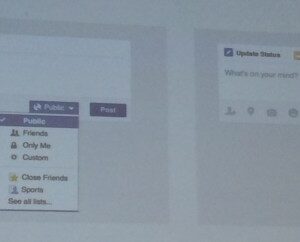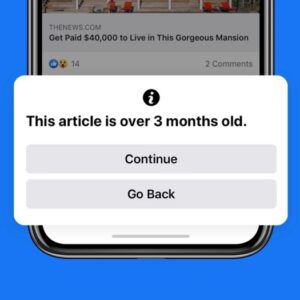Facebook Smart Speakers Launch Delayed: The social media giant’s foray into the smart speaker market has hit a snag. Anticipation was high for Facebook’s entry into a space dominated by Amazon and Google, promising a unique integration of social features and perhaps even a privacy-focused alternative. But the delay begs the question: what went wrong, and what does this mean for Facebook’s ambitions in the smart home?
This delay isn’t just a minor setback; it impacts Facebook’s strategic positioning, its financial projections, and its overall brand image. We’ll delve into the potential technical hurdles, internal struggles, and external factors that contributed to the postponement, exploring the ripple effects across Facebook’s broader tech strategy. We’ll also speculate on the future – a potential relaunch timeline, revamped marketing strategies, and the crucial lessons learned from this stumble.
Facebook’s Smart Speaker Market Entry
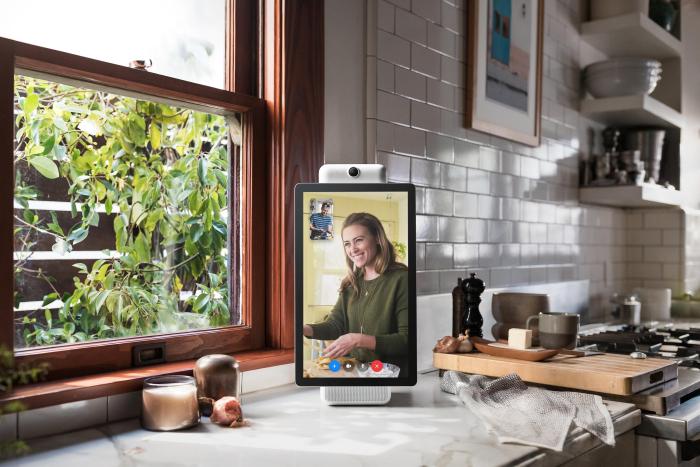
Source: gmanews.tv
Facebook’s foray into the smart speaker market, though ultimately delayed, represented a significant ambition to challenge established giants and carve out a substantial piece of the burgeoning voice-activated technology pie. The company’s considerable user base and existing social network infrastructure presented a potentially powerful platform for launching a competitive product, aiming to integrate seamlessly into users’ daily lives.
Facebook’s Targeted Market Share
Facebook’s strategic goal with its smart speaker wasn’t simply to participate; it aimed for a considerable market share. Leveraging its massive user base, the company likely projected capturing a significant portion of the younger demographic and social media-savvy users, a group less entrenched with existing smart speaker brands. Their aim was to make the device not just a convenient tool, but an integral part of the Facebook ecosystem, enhancing user engagement and data collection. The success of this strategy, however, hinged on offering a compelling product that could compete on features and price with already established players.
Competitive Landscape and Product Differentiation
Upon launch (or intended launch), Facebook would have faced stiff competition from Amazon’s Echo and Google’s Home, the dominant players in the market. Amazon, with its vast e-commerce infrastructure and Alexa’s established voice assistant capabilities, held a significant lead in market share and brand recognition. Google Home, on the other hand, boasted strong integration with Google services and a sophisticated voice recognition system. Facebook’s smart speaker would have needed a compelling unique selling proposition (USP) to differentiate itself. This could have involved superior sound quality, innovative privacy features, or deeper integration with Facebook’s social networking services, potentially focusing on features geared towards social interaction and content sharing. Pricing would have been crucial; undercutting the competition might have been necessary to attract users, especially considering the established brand loyalty to Amazon and Google.
Strategic Rationale for Market Entry
Facebook’s entry into the smart speaker market was driven by several strategic factors. Firstly, the device served as a potential new revenue stream, offering opportunities for advertising and in-app purchases. Secondly, it provided a valuable entry point into the growing Internet of Things (IoT) market, allowing Facebook to collect more user data and integrate its services into smart homes. This data collection, though controversial, would have provided invaluable insights into user behavior and preferences, further refining targeted advertising and product development. Finally, the smart speaker served as a strategic move to strengthen Facebook’s position in the tech industry, expanding its reach beyond its core social networking platform and diversifying its revenue streams. The potential for creating a centralized hub for communication and information within the Facebook ecosystem was a powerful incentive.
Smart Speaker Feature Comparison
| Feature | Facebook Speaker (Projected) | Amazon Echo (Example Competitor A) | Google Home (Example Competitor B) |
|---|---|---|---|
| Voice Assistant | Likely integrated with Facebook Messenger and other services | Alexa | Google Assistant |
| Sound Quality | Projected to be competitive, potentially focusing on specific audio profiles | Varies by model; generally good for its price range | Varies by model; generally good for its price range |
| Smart Home Integration | Likely integration with various smart home devices | Extensive integration with a wide range of smart home devices | Extensive integration with a wide range of smart home devices |
| Privacy Features | Potentially emphasized due to past privacy concerns | Offers various privacy settings and controls | Offers various privacy settings and controls |
| Pricing | Likely competitive with existing market leaders | Varies by model; generally affordable | Varies by model; generally affordable |
Reasons for the Delay
So, Facebook’s smart speaker? Yeah, about that… the launch got pushed back. While the social media giant has dipped its toes into the hardware market before, this delay raises some interesting questions about the challenges of entering the already-competitive smart speaker arena. Let’s dive into the potential culprits.
Technical Challenges
Developing a smart speaker isn’t just about slapping together some components and calling it a day. It requires seamless integration of hardware and software, robust voice recognition, and reliable connectivity. A delay could easily stem from unforeseen complexities in these areas. Imagine, for instance, the difficulties in optimizing the device for various accents and dialects, ensuring accurate voice commands even in noisy environments, or perfecting the natural language processing (NLP) to handle the nuances of human conversation. These are not trivial issues; they require significant engineering effort and testing. Minor glitches can snowball into major setbacks, requiring extensive debugging and refinement. A seemingly simple feature like far-field voice recognition can turn into a massive technical hurdle, pushing back deadlines.
Internal Factors
Beyond the technical hurdles, internal factors often play a significant role in project delays. Facebook, like any large corporation, juggles numerous projects simultaneously. Resource allocation is crucial. Perhaps the smart speaker project didn’t receive the priority or manpower it needed, leading to slower development. Prioritization shifts happen; maybe other projects deemed more strategically important took precedence, diverting resources and expertise away from the smart speaker initiative. Internal communication breakdowns or disagreements on the product’s direction could also contribute to the delay. Think of it like a massive game of Tetris, where all the blocks (resources, teams, timelines) have to fit perfectly. One misplaced block can topple the whole stack.
External Factors
External factors can also significantly impact product launches. Supply chain disruptions, a common occurrence in recent years, could easily delay the production and delivery of crucial components. The global chip shortage, for example, has affected countless industries, and smart speaker manufacturing is no exception. Furthermore, regulatory hurdles are another significant possibility. Depending on the device’s features and intended markets, compliance with various regulations (privacy, data security, etc.) can be a lengthy and complex process. Navigating these legal landscapes can easily add months to a launch timeline, even with a well-prepared team. Imagine the paperwork alone – enough to make anyone’s head spin.
Impact of the Delay
The delay in launching Facebook’s smart speaker isn’t just a minor setback; it ripples through the company’s finances, reputation, and long-term strategic goals. The missed opportunity costs, coupled with potential damage to consumer trust, paint a picture far more complex than a simple postponement. Let’s dissect the ramifications.
The financial impact is multifaceted. Directly, the delay translates to lost revenue from potential sales during the planned launch window. Indirectly, it impacts marketing and development costs already incurred, potentially rendering some of these investments less effective. Consider the marketing campaigns, manufacturing preparation, and retail partnerships—all incurring expenses that might yield less return than initially projected due to the delay. The longer the delay stretches, the greater the financial burden, potentially impacting quarterly earnings and investor confidence. A comparison with the delayed launch of the Amazon Fire Phone, which ultimately resulted in significant write-downs, highlights the potential severity of these financial repercussions.
Financial Impact on Facebook
The financial impact of the delay is significant and multifaceted. The missed sales revenue during the initial launch period represents a direct loss. Furthermore, continued investment in development and marketing without immediate returns adds to the financial strain. We can estimate the potential losses by considering the projected sales figures, marketing expenses, and the potential for negative investor sentiment impacting Facebook’s stock price. The delay might also affect the company’s overall profitability and its ability to invest in other promising projects. A delay similar to the Google Glass launch, which faced significant setbacks, showcases how prolonged delays can negatively impact profitability.
Impact on Brand Reputation and Consumer Trust
A delayed product launch can erode consumer trust and damage a company’s brand reputation. The anticipation surrounding the launch generates hype; when unmet, this can lead to disappointment and skepticism. Negative press coverage surrounding the delay might further amplify this negative sentiment. Facebook’s reputation for innovation and technological prowess could be tarnished if the delay is perceived as a sign of insufficient preparation or internal issues. This could lead to a loss of consumer confidence, making it harder to compete with established players in the smart speaker market. Consider the negative press surrounding the initial launch of the Apple Watch, which faced criticism regarding battery life and features, demonstrating how delays and initial product shortcomings can affect brand image.
Impact on Long-Term Smart Home Strategy
The delay significantly impacts Facebook’s long-term strategy in the burgeoning smart home market. Missing the initial launch window allows competitors to solidify their market positions, making it harder for Facebook to gain significant traction. The delay could also impact Facebook’s ability to integrate its smart speaker seamlessly with its existing ecosystem of products and services. This missed opportunity to establish an early foothold could hinder Facebook’s ability to compete effectively with Amazon, Google, and Apple, whose smart speakers already hold significant market share. The delayed entry into the market could potentially create a ripple effect, affecting the development and launch of other related smart home products planned by Facebook.
Comparison with Other Tech Product Delays
The impact of this delay can be compared to other high-profile tech product launch delays. For instance, the delays faced by Tesla with its various vehicle models demonstrate how production challenges can significantly impact a company’s financial performance and consumer perception. Similarly, the delays experienced by Microsoft with the launch of the Xbox One highlighted the importance of a smooth product launch to maintain consumer trust and market competitiveness. These cases demonstrate that delays, regardless of the reasons, often result in a complex interplay of financial losses, reputational damage, and strategic setbacks. The scale of impact is often proportional to the level of anticipation and the size of the market the product is targeting.
Future Outlook for Facebook’s Smart Speaker
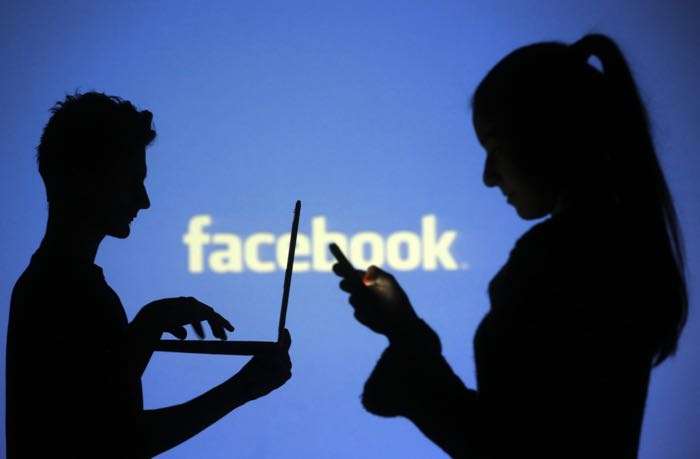
Source: geeky-gadgets.com
Facebook’s smart speaker launch delay? Yeah, another tech giant tripping over its own feet. It reminds me of that whole fiasco with the iPhone X, remember reading about the iPhone X bug impacting Suica users in Japan ? Major inconvenience, right? So, maybe Facebook’s taking extra time to avoid a similar PR nightmare with their own gadget.
The delay in Facebook’s smart speaker launch presents both challenges and opportunities. While the setback is undoubtedly frustrating, it allows Facebook to refine its product and marketing strategy, potentially emerging stronger in a rapidly evolving market. The key to success lies in learning from past mistakes and adapting to the current landscape of voice assistants and smart home devices.
Potential Relaunch Timeline
Considering the initial delays, a realistic relaunch timeline would likely push the product into late 2024 or early 2025. This allows for sufficient time to address technical issues, refine the user experience, and develop a comprehensive marketing campaign. Similar delays have been seen in the tech industry; for instance, the initial launch of Google Glass was significantly delayed due to technical challenges and market readiness concerns. Facebook can learn from these examples and ensure a smoother rollout.
Revised Marketing Strategy, Facebook smart speakers launch delayed
The delayed launch necessitates a revised marketing strategy that addresses consumer skepticism and highlights the unique value proposition of the Facebook smart speaker. Instead of focusing solely on novelty, the marketing should emphasize integration with the Facebook ecosystem. This could include showcasing seamless connectivity with Messenger, WhatsApp, and other Facebook services, highlighting the convenience and unique features this integration provides. A successful example of this is Amazon’s Echo, which leveraged its integration with other Amazon services to solidify its market position. The campaign should also focus on privacy and security, directly addressing past concerns regarding Facebook’s data handling practices.
Potential Improvements and Changes
Facebook should prioritize improvements in areas where competitors excel. This includes enhancing sound quality, expanding voice assistant capabilities beyond basic functions, and improving the overall user interface for intuitive navigation. They might also integrate more robust smart home compatibility, focusing on interoperability with various smart home devices and platforms. Consider Apple’s HomePod, which focuses on high-fidelity audio and seamless integration within the Apple ecosystem. Facebook could draw inspiration from its strengths and competitor’s successes to improve their product.
Potential Marketing Campaign Visuals
Imagine a series of short, vibrant video ads showcasing everyday scenarios where the Facebook smart speaker simplifies life. The target audience would be existing Facebook users, particularly those already invested in the Facebook ecosystem (e.g., using Messenger, WhatsApp, Instagram regularly). The visuals would feature diverse individuals using the speaker for various tasks: listening to music, managing smart home devices, making video calls via Messenger, and easily scheduling events. The key message would be “Connect Smarter. Live Easier.” – highlighting the seamless integration and convenience offered by the device within the Facebook ecosystem. The ads would employ a clean, modern aesthetic, reflecting the speaker’s design and emphasizing its sleek and user-friendly nature. Think a blend of Apple’s minimalist style and Google’s vibrant, everyday-life approach.
Lessons Learned
Facebook’s delayed smart speaker launch offers a valuable case study in product development. The setback, while potentially damaging in the short term, presents an opportunity for significant learning and improvement in their approach to future projects. By analyzing the missteps, Facebook can refine its strategies and emerge stronger in the competitive tech landscape.
The primary lesson revolves around the critical importance of realistic timelines and robust contingency planning. Underestimating the complexities of hardware development, software integration, and market readiness contributed significantly to the delay. This highlights the need for a more rigorous and adaptable approach to project management, incorporating sufficient buffer time to account for unforeseen challenges.
Realistic Timelines and Contingency Planning
Effective product development necessitates a realistic assessment of the time required for each stage, from initial concept to final launch. Facebook’s experience underscores the dangers of overly optimistic projections. A detailed breakdown of tasks, with clearly defined milestones and deadlines, is crucial. Furthermore, a comprehensive contingency plan should be developed to address potential delays caused by factors such as supply chain disruptions, unexpected technical hurdles, or changes in market conditions. For instance, incorporating a “what-if” scenario analysis, considering potential risks and their impact on the timeline, could have mitigated the effects of the delay. A robust plan might include alternative manufacturing sources or fallback strategies for software development, minimizing the overall impact of unforeseen issues. This proactive approach reduces the likelihood of significant setbacks and maintains a more predictable product development lifecycle.
Closure: Facebook Smart Speakers Launch Delayed
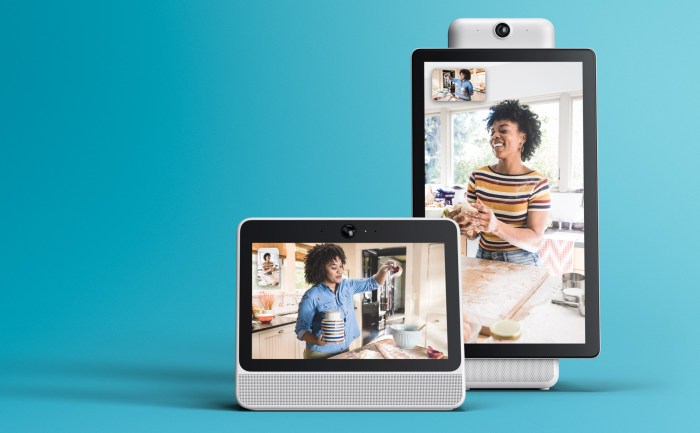
Source: foolcdn.com
The delayed launch of Facebook’s smart speaker serves as a potent reminder that even tech giants aren’t immune to unexpected challenges. While the reasons behind the delay remain multifaceted, the incident highlights the importance of thorough planning, realistic timelines, and adaptability in the fast-paced world of tech innovation. The future of Facebook’s smart speaker remains uncertain, but the lessons learned from this setback could ultimately shape its success (or failure) in the competitive smart home arena. The wait continues, and only time will tell if Facebook can successfully navigate this hurdle and claim its place among the smart speaker elite.
